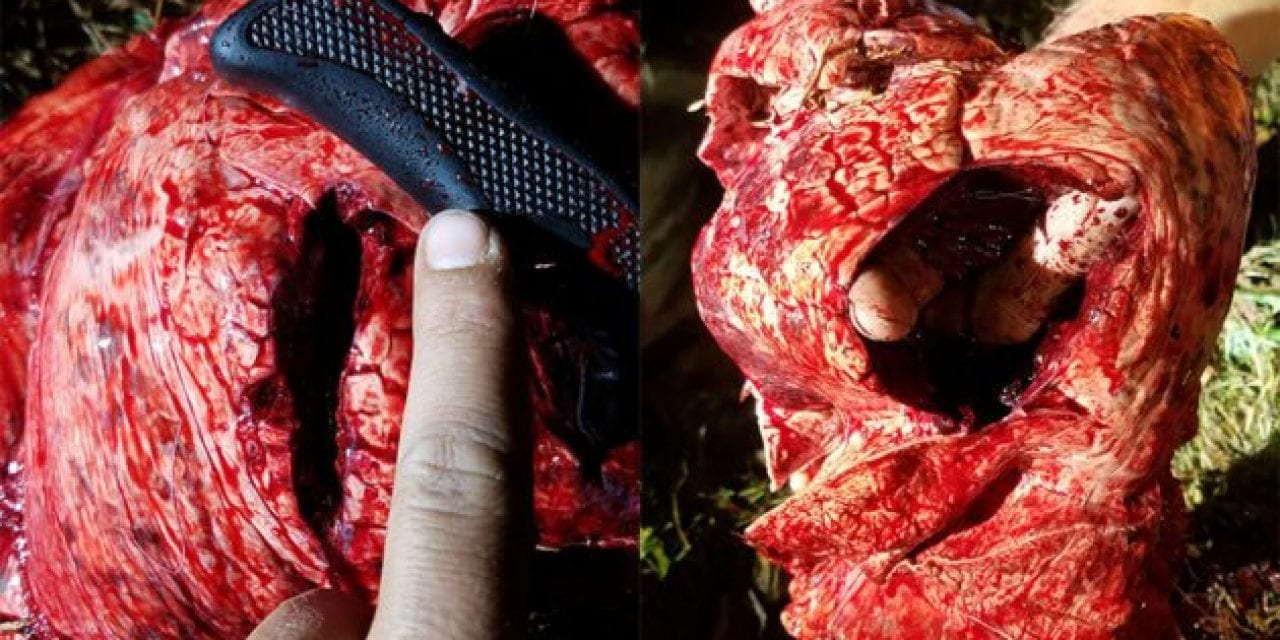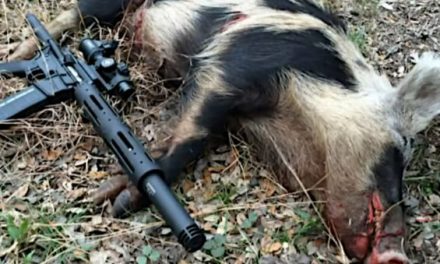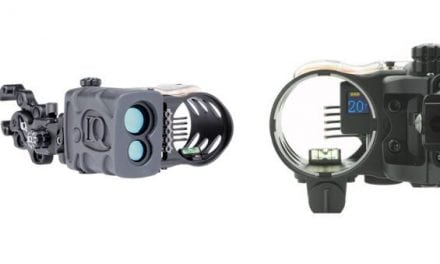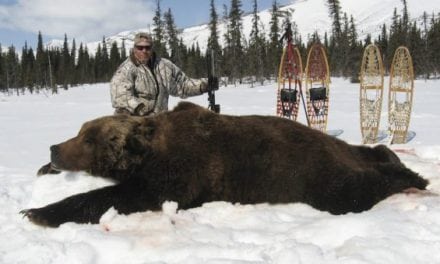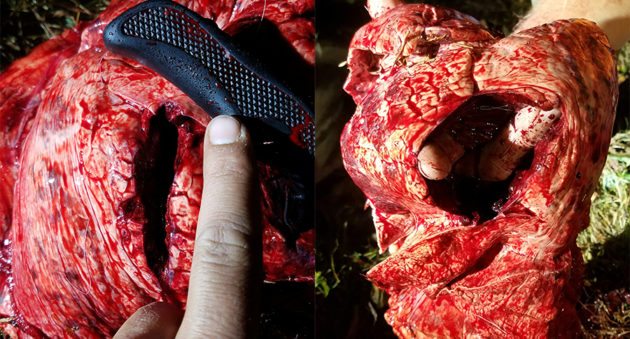
After three years and fifteen different broadheads, I’ve finally found one that I really like, and it’s made by Dead Ringer.
I like to think I’m a realist. I’m your everyday, ordinary hunter who works very hard year round in the deer woods.
The year 2016 had been my most successful year, both personally and for my outdoor team, Top Pin Outdoors. We had been all up and down the Northeast, filming and hunting, and trying to put our personal best down with a tag since early September.
At the beginning of the year, I was shooting a new broadhead that a company had sent me to perform a field test with. I shot and wounded a buck in the early season and never found the deer. After countless efforts, sleepless nights and continuous footage review, I realized that the shot was not fatal.
The thing was, I never would have hit that deer if it didn’t jump my string. Even at 25 yards, my shot was way low.
I immediately went back to shooting the broadhead at my target. What I found was that the broadhead was quite inconsistent when it came to accuracy. Sometimes it would fly straight, other times it would not. As I began to shoot it more and more I realized it wasn’t me, but it was the broadhead. I knew it was time for a change.
Dead Ringer Broadhead
Quite frankly, I used to be a huge Rage broadhead fan and never gave the Dead Ringer much of a look. That was until I spoke with a Chase Rohlfsen of Rubline Marketing, who told me, “I’m not a salesman. I shoot these broadheads myself and I love them. I haven’t lost a deer I took a shot at to date and I can tell you, you will like these.”
Even though I get to test out products in the field, when it comes to archery equipment, it’s very tough for me to change anything. That’s especially true when I’ve been having success with any one item in particular.
The thing is, I wasn’t having much success with the broadheads I was using. I am a guy who grew up shooting 85-grain Muzzy broadheads and have killed more deer with double lung and heart shots with a small fixed blade than any other broadhead in my life.
But as technology is advancing, I like to get ahead of the game and try to find something that will be accurate and do some damage. I think I found it.
Shot Placement
If you can double lung a deer with a broadhead, the animal won’t go far. If you can heart shot a buck with a broadhead, your blood trail will be great and he’ll drop soon after. So what does that all really boil down to? Shot placement.
It’s the utmost important thing that some hunters forget. If you’re trying to find the “best broadhead” on the market, the tests are all dependent on your shot placement.
Often times people will write off a broadhead after they lose one deer and blame it all on the broadhead. Others will make a perfect shot and say the only reason the deer died was because of the broadhead.
The thing is, shot placement can be consistent with field tips, but when you switch to a broadhead, it can be difficult to tune. When you put a 140″ buck in front of you at 30 yards, it can add to the stress and become that more difficult.
The bottom line is you want a broadhead that is accurate 100% of the time. You want a broadhead you can trust as soon as you release the arrow.
Trying Something New
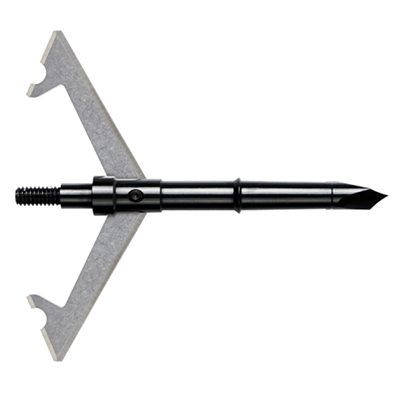
I began shooting the Freak Extreme 2.5 about halfway through the 2016 hunting season. After shooting a buck in the Appalachian mountain region of New York State with the Trauma 2.0 broadhead, I figured I would give these a try. The Freak Extreme broadhead cuts a 3/4″ wound, then expands to a 2.5″ cutting machine. Needless to say I was excited to put them to the test.
I spent the first morning with the broadheads shooting them at my target. They not only were accurate, but they flew exactly like my field tips. When I first shot the Trauma 2.0 broadheads, which are just as accurate, I had to tune my bow a little bit to match the broadhead. The Freak Extreme broadhead flew exactly like my field tips, so I knew I was onto something.
My first test was while I was hunting in Pennsylvania and hunting out of a deer blind with my father. A grey squirrel made its way to the field at 22 yards. I placed a perfect head shot on the squirrel like it was nothing.

Now some of you are probably wondering “Why would you waste a perfect broadhead and arrow on a squirrel?” Two reasons: I like to eat squirrel, and I wanted to test the accuracy of the broadhead in the field before I shot and lost another buck.
The Damage is Done
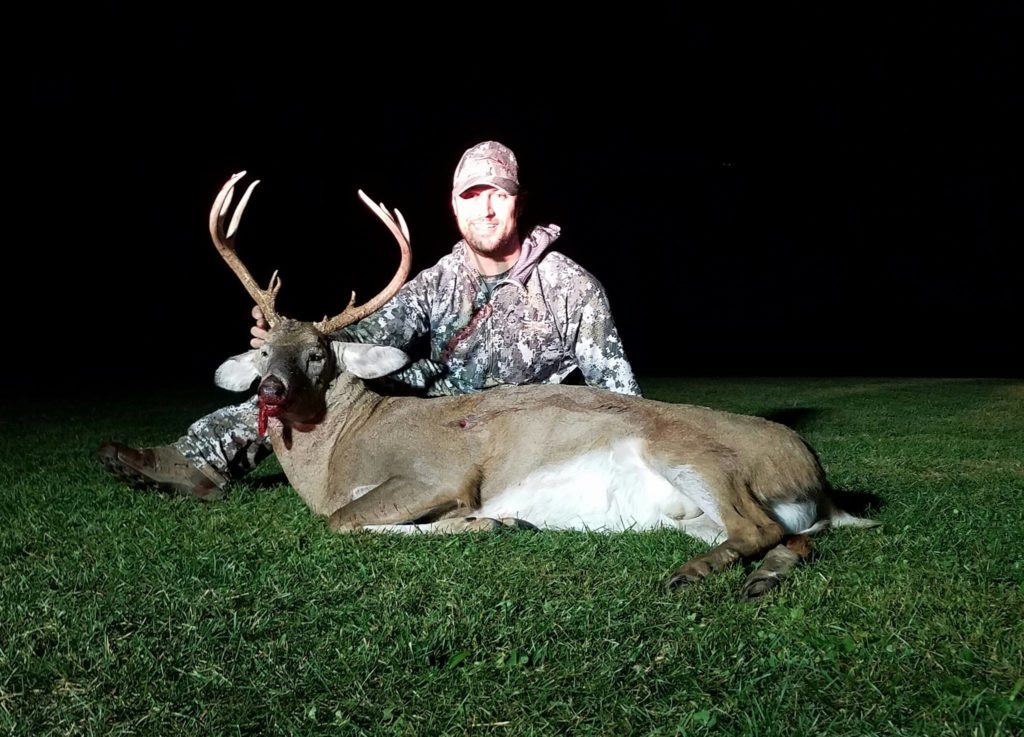
The following week, I was leaving Pennsylvania to go on my two week long trip to Maryland. I have a few farms I help manage there, and one of the farms I have been on for roughly five years. We practice Quality Deer Management and shoot nothing under 3.5-year-old deer.
On November 4th, 2016 I set out to self-film a hunt and was hoping to get one of our hit list bucks. What I ended up harvesting was a mature cull buck, and I couldn’t have been happier.
I rattled the bucked in right at sunset and he offered me a 40-yard shot. After adjusting the cameras and watching this buck for 20 minutes before the shot, I was at full draw.
The past few years have been rough for me in my quest to find an accurate and deadly broadhead. Many times I have found myself questioning my ethics and if I did everything correct to ensure I took the best possible steps to harvest the animal I had in my sights.
At full draw with the Dead Ringer, I had nothing but confidence.
When I released the arrow, I knew I had made a perfect shot. I knew the buck was down because I heard him crash. I was still a little nervous, but when I finally got down from my stand and walked over, I was confident I would find him close by.
The tracking was easy and we found him a short 60 yards from the initial shot. The entry hole was slightly larger than 3/4″ and the exit hole was something out of a horror story.
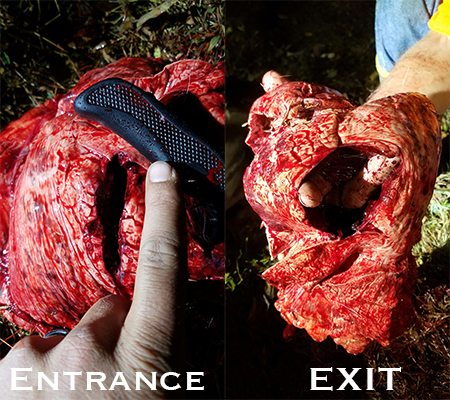
As my father gutted my deer, I asked him to be careful not to cut the vitals. I wanted to see the damage the broadhead did. What he pulled out of the chest cavity was a true, double lung shot. It wasn’t only a sight of 100% accuracy, but explained the lack of distance the buck went after being shot.
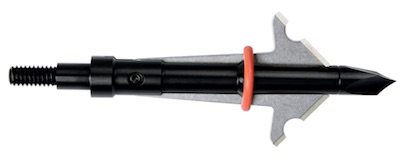
The Freak Extreme 2.5 from Dead Ringer features a Trocar tip designed to shatter and penetrate bone like no other. It has an extremely durable O-Ring that holds the blades to ensure that they do not open in flight. Because the broadheads open from the front and are not rear opening, they are guaranteed to deploy. I’ve spoke with many butchers who have seen quite a few problems with rear deploying broadheads. Although I have only witnessed it once, a broadhead not deploying on a buck of a lifetime is devastating.
I learned from a survey I did that it’s most important to hunters to have an accurate broadhead. When you can mix accuracy, devastation and reliability all in one, you increase your confidence.
Contrary to belief, it’s hard to find “the best broadhead on the market” as defined the same way by everyone. If you can find what works for you and build confidence, it will make all the difference.
Like what you see here? You can read more articles by Dustin Prievo here. Follow him and his hunting team, Top Pin Outdoors, on Twitter, Facebook and Instagram.
NEXT: ILLEGAL HUNTING MARYLAND LEADS TO ARREST AND SEVERAL CITATIONS
WATCH
The post Look at What This Dead Ringer Broadhead Did to a Maryland Buck appeared first on Wide Open Spaces.

